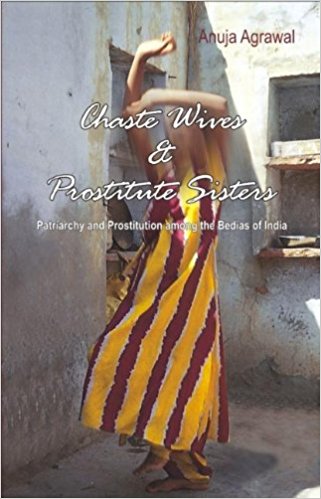Sociologist Anuja Agrawal’s book is an attempt to understand the ‘familial economy’ of the Bedia community in the light of the role that women play as both ‘chaste wives’ and ‘prostitute sisters.’ The de-notified community of the Bedias, though ‘numerically insignificant’ are found in large parts of Madhya Pradesh, Uttar Pradesh and Rajasthan. They are primarily a rural community and classified as scheduled caste in the three states where they are located. The Bedia women contribute significantly to the economy of the community as the family unit depends largely on the labour of women. The men (whom the author describes as ‘indolent’) do not partake of any income-generating activity while the women support the family through prostitution and unpaid labour in the home. (I personally prefer to use the term sex worker to refer to contractual sexual service between con-senting adults but have used the term ‘prostitute’ as it is the author’s preferred expression.)
In her introduction, Agrawal lays out the terrain of enquiry and writes: ‘I am specifically concerned with the manner in which the practice of prostitution among the Bedias shapes their structure and ideologies; the extent to which these resemble or differ from the structure and ideologies of broader society…. Is the Bedia practice a subversion of the dominant family structures and ideologies? Or does it make alternative uses of a highly flexible ideological framework? Do the values that underpin the woman’s relation with her family undergo a drastic reconfiguration in this case? In employing their women in prostitution, are the Bedias espousing an alternative sexual morality and a radically altered familial ethos?’

